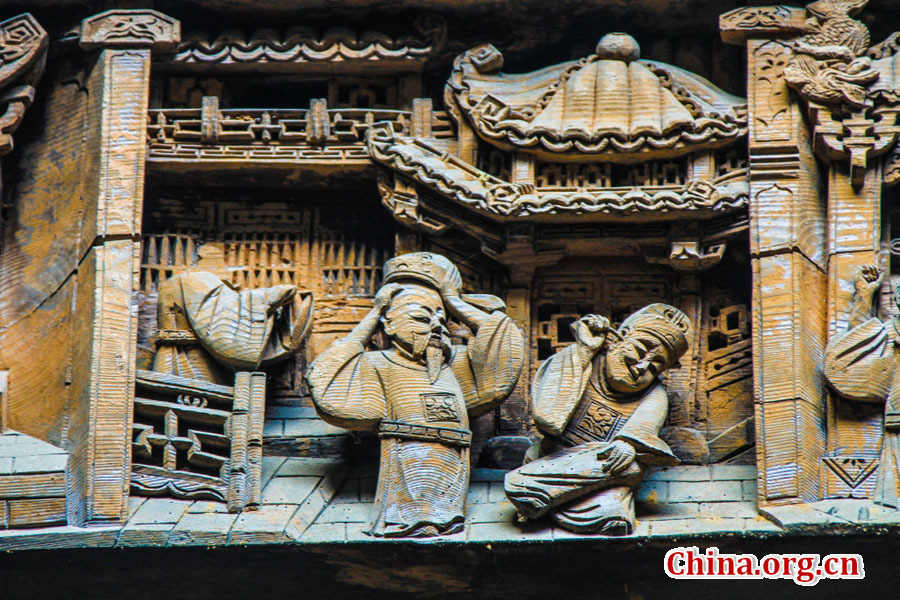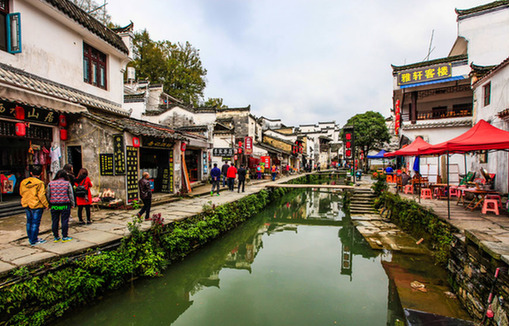Likeng, village as cultural heritage
 0 Comment(s)
0 Comment(s) Print
Print E-mail China.org.cn, April 22, 2016
E-mail China.org.cn, April 22, 2016

Likeng village, located in the Tuochuan township of Wuyuan county, in Jiangxi province, was once known as Liyuan during a time when China was much younger.
The historical village is located 45 kilometers northeast of Wuyuan county and was established during the late Song Dynasty at a time when reading was the prevailing activity among the villagers. The people who lived there advocated the doctrines of Zhu Xi, so the village is often referred to as the “Origin of Neo-Confucianism” by scholars.
For hundreds of years, this remote locale has become a place filled with a large number of remarkable people who have made advancements in Chinese society. The village has produced 36 county magistrates who have achieved a seventh rank or higher, 16 Jinshies (people who passed all three examinations administered by the government) and 92 members of China’s literati.
To date, the village has produced up to 592 volumes of writing, of which 78 volumes have been listed within the “Authorized Books”. Many ancient buildings in Likeng have been well-preserved over the years.
The bureau office building of Yu Ziyi, a Guangzhou magistrate during the Ming Dynasty, “Tian Guan Shang Qing” of Yu Maoheng, from the Li ministry during the late Ming Dynasty, “Shang Shu Di” from Yu Maoheng, an official to Hubushilang and “Si Ma Di” of Ma Yuwei, an official from the Ming Dynasty.[China.org.cn/Photo by Han Jiajun]





Go to Forum >>0 Comment(s)